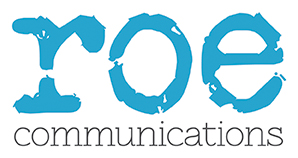Business schools are treasure troves of research on business, management and leadership.
They cover many topics from diversity to productivity, family enterprise to innovation, sustainability to technology transformation.
Despite this, business schools still struggle to interest journalists in their work.
All too often, press releases fall into a black hole. Emails to journalists stay stubbornly unanswered. Press office telephones remain silent.
But why is this, when business schools are doing such innovative work?
In our experience of working with business schools worldwide, there are several common mistakes preventing journalists from covering business school stories.
Here are a few to consider:
1. It wasn’t new
Reality check: if a business school’s research project merely confirms what is known or obvious already, then it won’t be “new” in the eyes of a journalist.
“New” refers to something that has recently come into existence, been created, or introduced. It implies a sense of freshness, originality, or novelty.
Just because a research paper has proven something for the first time, does not make the results “new”.
The same applies if a story covers a topic that has been repeatedly reported on without new insights or developments.
2. It was boring
If the outcome or content of the story is easily predictable, it can fail to generate curiosity or interest. Stories that are counter-intuitive or unusual stand out.
Likewise, a story that is excessively long and rambling, or lacks a clear and concise structure, can lose readers’ attention. Keep it brief!
For this reason, adding multimedia elements like images, videos, or interactive content can make a story more engaging.
3. It wasn’t relevant
Journalists aim to produce content that engages their audience, and they know them extremely well.
A story will not pass muster if it doesn’t relate to their reader’s interests, concerns or daily life.
Also, relevance to current events ensures that the story contributes to the ongoing public discourse.
Cision’s 2024 State of the Media Report polled more than 3,000 journalists and found that relevance was the most important ingredient for the perfect PR pitch.
4. It was too technical
Most business school research papers are difficult for non-academics to read.
Business schools must make their stories more accessible, or they won’t get covered.
Journalists have limited time to review pitches. Therefore clear and straightforward language ensures that they can quickly understand why the story is significant.
Therefore stories that use too much jargon, detailed statistics, or complex concepts will put them off.
5. The timing wasn’t right
News is inherently time-sensitive. A pitch that aligns with current events, trends, or ongoing public interest is more likely to be picked up.
Journalists and news outlets are in constant competition to break stories first. A well-timed pitch can allow a journalist or publication to be the first to report on a significant story.
Many news organisations have editorial calendars that outline themes or topics they plan to cover at specific times. Certain stories have greater impact or relevance during specific times of the year.
Journalists are time-pressured and often need to attend editorial meetings and meet daily deadlines. Knowing these timings ensures business schools get ahead of their decision-making and are more likely to be included in their content schedules.
6. They didn’t establish a prior relationship with the journalist
When journalists know and trust a source, they are more likely to consider pitches from them.
According to Cision’s State of the Media report, half of all journalists are inundated with more than 50 pitches a week.
So, it stands to reason that they are more likely to work with people they already know.
Business schools are also more likely to pitch relevant content if they know a journalist.
Read what they write about, get to know the topics they are interested in or engage with them on social media.
Also keep an eye on journalist moves.
7. It was too promotional
Reality check: journalists are there to write stories for their readers, not to write your story. PR is not “cheap advertising”.
Business schools come a cropper when they pitch “vanity” stories to journalists.
To be good at this, you need a strong focus on your objectives and what you want to be known as.
Often this means building the capability to say “no” to internal colleagues who might cause you to stray from your path.
If you have a research project that you want to promote get in touch!


